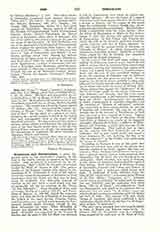

SEM (Hebrew: SM, “name”, “fame”, “renown”; in Septuagint, Greek: Sem; A. V., Shem), son of Noe; according to Gen., x, 21, the eldest. His birth and generations are recorded in Gen., v, 31; xi, 10 sqq. (cf. I Par., i, 4, 17 sq.; Luke, iii, 36). He lived to be six hundred years of age. An incident, narrated Gen., ix, 18 sqq. discloses his filial reverence. His reward was a blessing of great import (cf. Ecclus. xlix, 19). Noe’s prophetic words (according to Massor. Text), “Blessed be Yahweh, the God of Sem” (for the glory of a nation is its God), designate, in a special manner, Yahweh as the God of Sem and, consequently, Sem as the bearer of the Messianic promises. Having enumerated the Semitic nations, whose habitat extended over the central portions of the then known world (Gen., x, 21-31), the Sacred Writer resumes (xi, 10 sqq.) the genealogy of the descendants of Arphaxad, the direct ancestor of Abraham, David, and Christ.
THOMAS PLASSMANN

